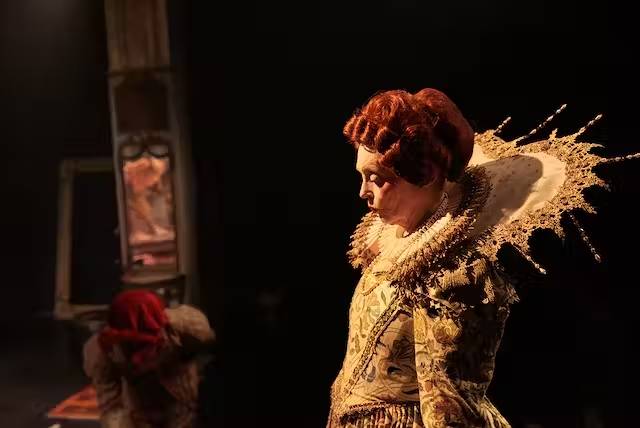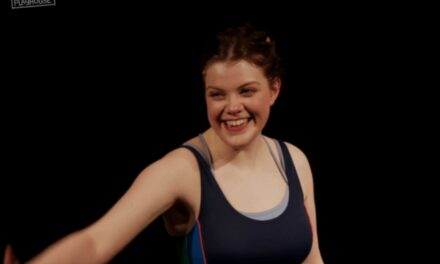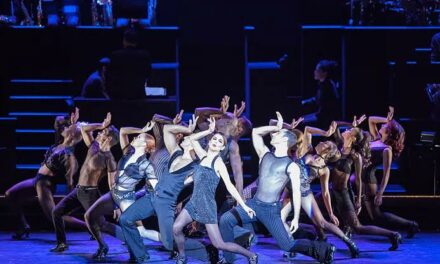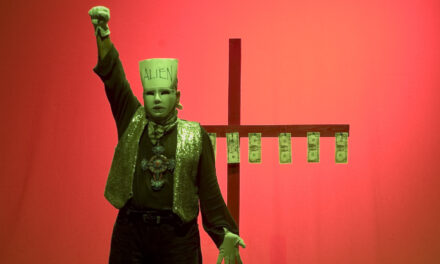Shakespeare wrote his famous narrative poem Venus and Adonis in a lockdown era when, in 1593, the bubonic plague closed the theaters in London for 18 months.
In Shakespeare’s poem Venus, the Roman goddess of love, continuously tries to seduce the human Adonis, who would rather go hunting with the lads than be caught kissing a goddess.
Shakespeare’s poem liberates female desire by having Venus lament that Adonis won’t gratify her sexually. Shakespeare makes Venus physically larger than Adonis, who struggles to defuse her lust. At one stage, Venus rips Adonis off his horse to carry him under her arm.
Although Adonis resists Venus, the sensuous eros in the verse of Shakespeare’s clever treatment certainly helped to drive its popularity:
“Fondling,” she saith, “since I have hemmed thee here
Within the circuit of this ivory pale,
I’ll be a park, and thou shalt be my deer;
Feed where thou wilt, on mountain or in dale:
Graze on my lips, and if those hills be dry,
Stray lower, where the pleasant fountains lie.
Shakespeare’s poem has been called the Fifty Shades of Grey of its day – a trite comparison in literary terms, but a fair comparison for its commercial popularity and erotic content.
Educated young men — and Queen Elizabeth I, according to Damien Ryan’s new play — kept a copy of the narrative poem under their pillow.
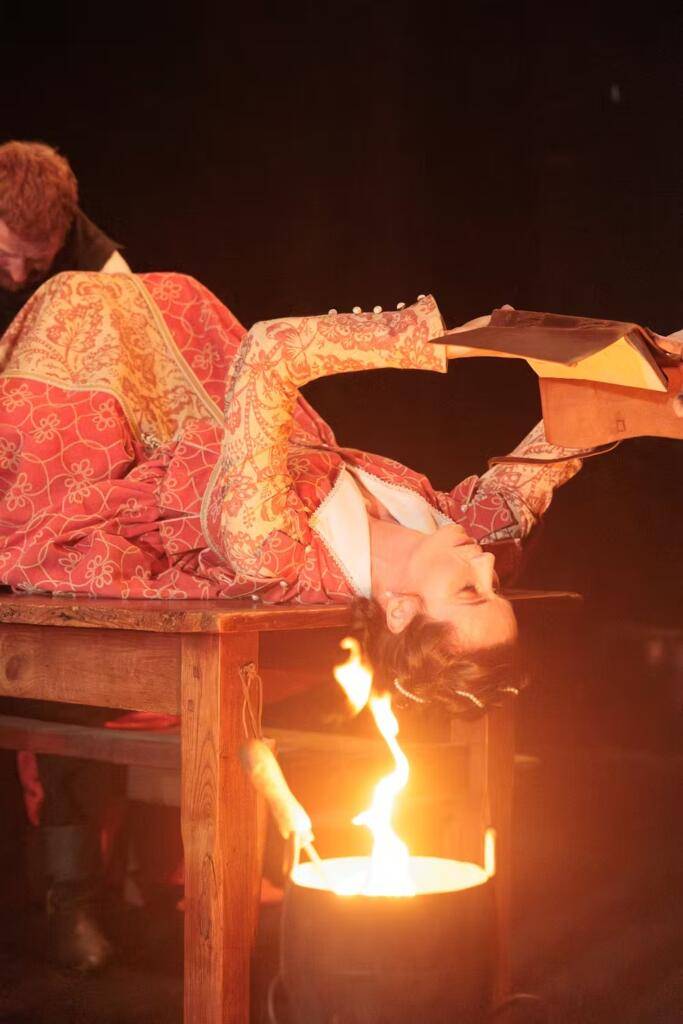
Copies of the poem were reportedly kept under pillows. Kate Williams/Seymour Centre and Sport For Jove
Ryan touts his Venus and Adonis as a “play within a plague,” yet it is more daring and ambitious than a mere adaptation of the poem. Here we have a speculative history play that culminates in Shakespeare (Anthony Gooley) and his actors performing his famous erotic poem before the queen (Belinda Giblin).
Ryan’s company Sport for Jove was initially forced to shoot the play as a film during COVID-19 lockdowns in 2020, so a “play within a plague” seems very apt.
Tragical-comical-historical-pastoral
With super-dynamic set design and costumes by Damien Ryan and Bernadette Ryan, Venus and Adonis is largely comical, but also tragic; wildly romantic, yet erotic and colorful.
We jump from the rooms of an Elizabethan doctor, who earns his bread-and-butter treating sexually transmitted diseases, to Shakespeare’s bedroom in London and his entanglements with his mistress Aemilia Lanyer (Adele Querol), a proto-feminist poet who became the first English woman to publish her own poetry in her own name in 1611.
Shakespeare helps Lanyer with her quest to publish (at the same time stealing her ideas for his own verse), but tragedy strikes home in Stratford with the loss of Shakespeare’s only son Hamnet. But soon Shakespeare’s company is called to perform his popular poem before the queen.
The editors of the First Folio might ask if this play is a comedy, history or tragedy. Perhaps Ryan would call on Hamlet’s Polonius to declare this play a very fine “tragical-comical-historical-pastoral”.
Ryan’s bawdy realism renders Shakespeare with many endearing quirks: his syphilis, his nakedness, his sexual affairs, his bi-curiosity, his laconic demeanor, his bewilderment at his own abilities and the neglect of his family in Stratford.
But Ryan also consciously aims to liberate three women who influenced Shakespeare, often eclipsed by the shadow of Shakespeare’s monolithic achievements.
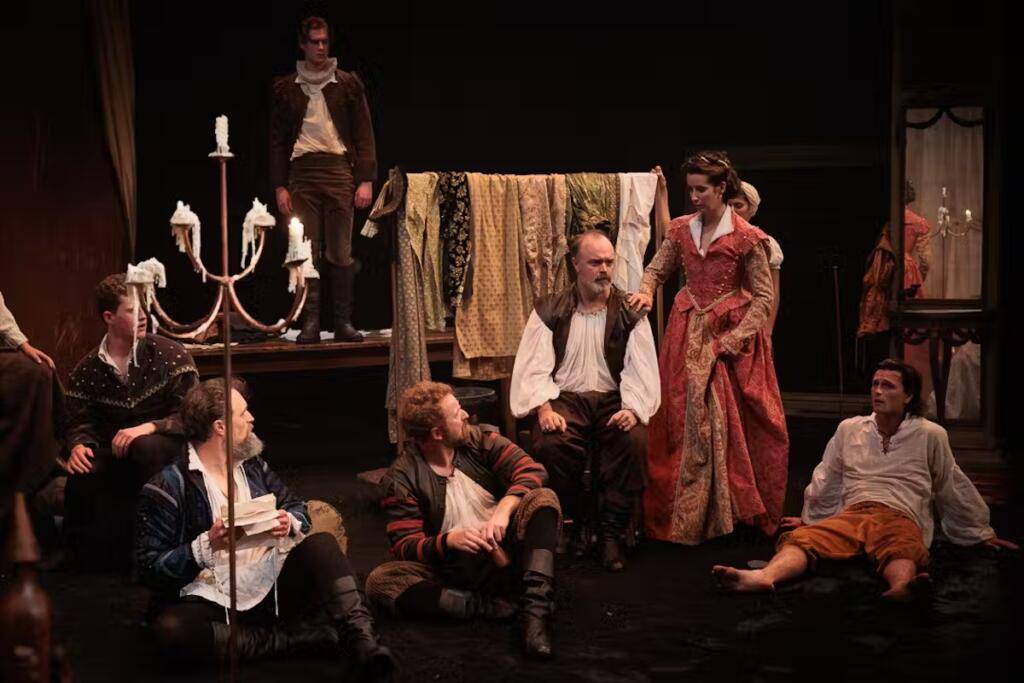
Ryan consciously aims to liberate three women who influenced Shakespeare. Kate Williams/Seymour Centre and Sport For Jove
Clearly attracted to verse, Aemilia Lanyer is construed as the “Dark Lady” mistress of Shakespeare’s sonnets, and Querol drives the energy of the play to become its co-protagonist.
Bernadette Ryan plays a searing Agnes Hathaway, Shakespeare’s neglected wife, too jaded by his absence to relish the sweetness of their romantic youth.
Giblin’s Queen Elizabeth is a cantankerous, yet savvy, f-Bomb-dropping patron of the arts. In one breath she pontificates as an elderly virgin queen; in the next she orders two athletic performers to her bedroom.
A vivid telling
The second act, concerning the rehearsal and performance of Shakespeare’s poem before the queen, rollicks forward like a rollercoaster that has, until then, climbed incrementally through the first act.
The second half intertwines multiple strands of drama and intrigue. The queen sits amid the audience and comments on the action (hilariously) in ways we wouldn’t dare. Her attending ladies swoon for handsome Adonis, who wishes he was Venus kissing the boys.
The performance goes off the rails, but the poetry shines, and the queen compares it to the brilliant work of a female poet she has just read — not realizing the poet, Lanyer, has been playing Venus. Then enters the ghost of young Hamnet…
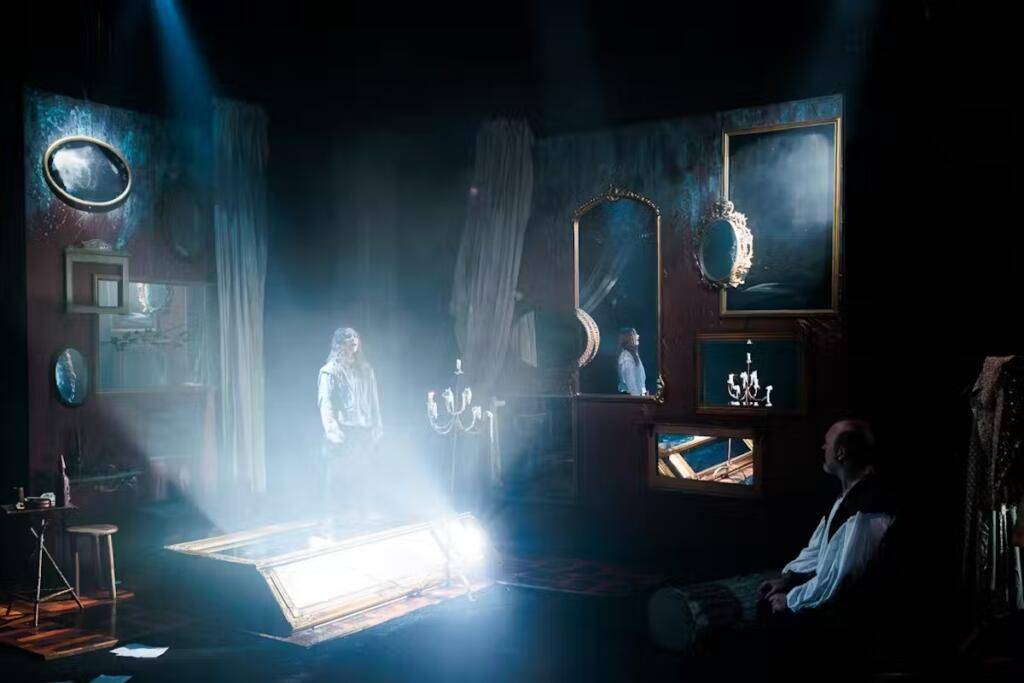
The play culminates in a performance of Shakespeare’s poem. Kate Williams/Seymour Centre and Sport For Jove
The action is admirably supported by Shakespeare’s leading man, Richard Burbage (Christopher Tomkinson), his leading clown Robert Armin (Kevin MacIsaac) and Shakespeare’s grown up “boy player” Nathaniel Field (Jerome Meyer), utterly appalled he must play the male Adonis instead of Venus.
Ryan capably navigates the diverse space of the cross-dressing rehearsal room and the queered space of poetic patronage and sonnet sequence circulation.
If Polonius never quite envisioned what he meant by a “tragical-comical-historical-pastoral,” Ryan’s Venus and Adonis delivers this hybrid form vividly in spades.
Venus and Adonis from Sport for Jove is at the Seymour Centre, Sydney, until October 21.
This article was originally republished by The Conversation, on October 12, 2023. Reposted with permission. Read the original article.
This post was written by the author in their personal capacity.The opinions expressed in this article are the author’s own and do not reflect the view of The Theatre Times, their staff or collaborators.
This post was written by Kirk Dodd.
The views expressed here belong to the author and do not necessarily reflect our views and opinions.

